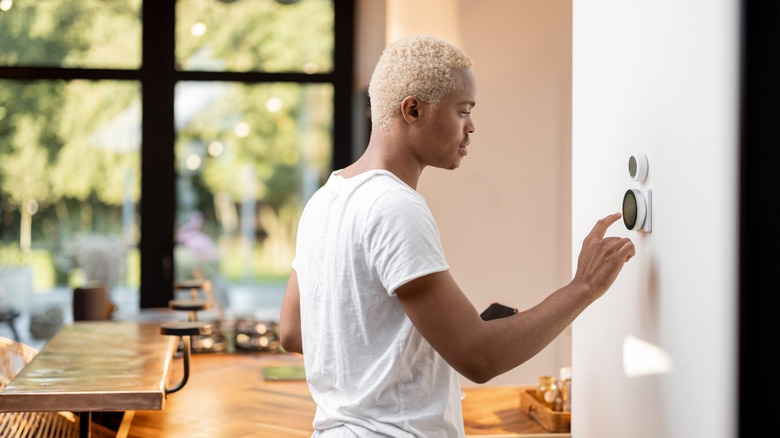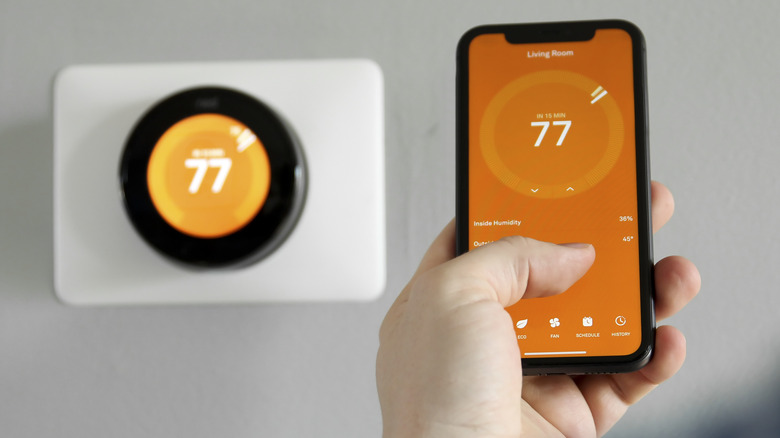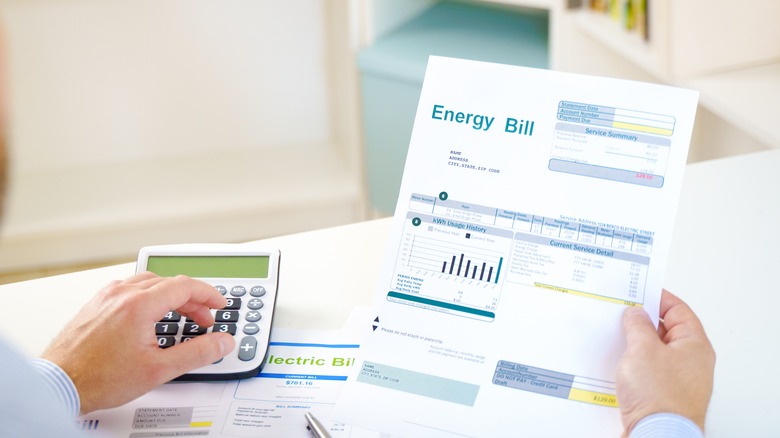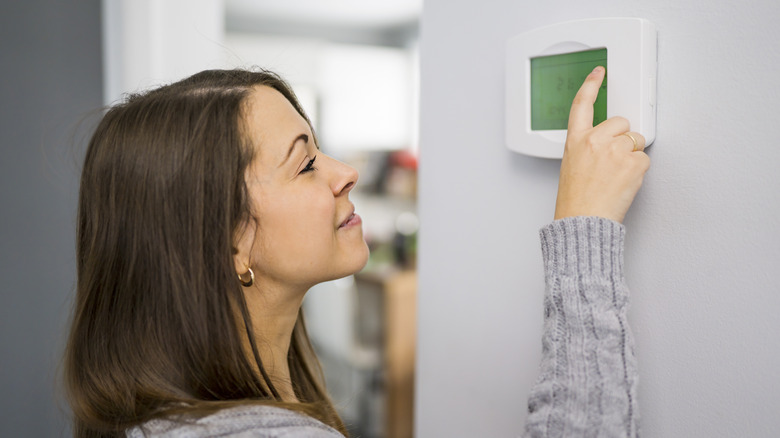Thermostat Myths You Believe Cost You Money, According To An Expert
Whether it's winter or summer, one of the most important systems in your home is not just the HVAC but the thermostat that controls it. This little box on the wall does quite a bit to keep your home at just the right temperature by sensing the current temperature, turning on the heating or cooling, and working to keep your energy bills low. If your home's heating bills are through the roof or the air conditioner seems to be turning on and off frequently without cooling your home properly, it may not be a problem with your furnace or AC. Rather, the problem could be with the functionality of your thermostat. A responsive thermostat helps to maintain the home's comfort and humidity levels, and some can reduce what you pay to heat and cool your home.
Yet, many people don't know how these devices work or the limitations they can place on your HVAC system when they fail to work properly. Greg Fasullo, a home energy expert and the CEO at Elevation, provides key insight into some of the most common myths people believe about their thermostats in an exclusive interview with House Digest.
MYTH: Smart thermostats aren't worth the hype
You've likely heard about smart thermostats which are controlled through a smartphone app. They may cost a bit more than the average older-style thermostat, but there's a good reason for this. Fasullo shares, "Smart thermostats help take the guesswork out of saving energy for homeowners while maintaining comfortable temperatures. Heating and cooling a home is the largest source of energy consumption for a household and responsible for almost 50% of the electricity bill. A programmable thermostat can cut heating costs by up to 12% and reduce cooling costs in the summer by 15%."
How can you save the most on your energy bills? "Consider utilizing the eco-friendly temperatures already established on your smart thermostat," suggests Fasullo. "While many homeowners may spike the temperature for faster results, maintaining an eco-friendly temperature is more efficient for both the environment and your wallet." There are other ways to save even more; one option rising in popularity is to pair a smart thermostat with solar panels, which is good for the environment as well. "With recent tax credits in place, solar is becoming more accessible too," Fasullo explains. "New legislation with the Inflation Reduction Act (IRA) has provided a 30% tax credit for rooftop solar, lowering the point of entry for millions of homeowners."
MYTH: Space heaters are more energy efficient than your heating system
Cold days may warrant a blanket instead of space heater, implies Fasullo. "Space heaters consume an exorbitant amount of energy and only further contribute to high electricity bills. If you're using a space heater in addition to an HVAC system to keep your home warm, it may be pointing to larger energy efficiency and weatherization issues at hand. A comfortable, warm home should be relied upon by the heating system alone."
Fasullo recommends looking for problems like cold drafts coming from windows and doors, many of which are easy to fix without calling in a professional. "Adhesive barrier tape," recommends Fasullo, "is a weather-sealing solution for window and door frames that blocks the cracks enabling air into homes but still allows them to be opened and closed freely. Once the doors and windows are sealed, homeowners should also take a closer look at their attics as well, as they're often a large contributor to energy loss."
Of course, this will be true when it's warm out as well. "If you find yourself using a window or wall AC unit due to certain areas of the home having higher temperatures," notes Fasullo, "it's time to take a closer look at the issue at hand. In doing so, the efficiency of your home will improve overall, lowering your monthly utility bills and increasing comfort."
MYTH: Appliances don't impact the thermostat
From your refrigerator to your hot water tank, every appliance in your home is pulling energy and increasing your utility bills. Knowing which appliance may be pulling too much power is not simplistic, which could be an early warning sign of a problem. "Keeping your home comfortable while also staggering the use of other major appliances... can significantly decrease your electric bill," states Fasullo. That doesn't work in all cases, as you shouldn't turn off your fridge or freezer, but it could be beneficial with laundry and cooking. Knowing how much energy you use could help reduce your overall costs. "Consider utilizing a whole home energy monitoring device that allows you to identify and monitor the electricity being consumed at various times throughout the day. With real-time energy use details in hand, you can begin to make smarter decisions about how your energy is used."
You might be surprised to learn that a lot of energy can be wasted by leaving on the lights or fans in an unused room or by leaving small appliances plugged in when they're not in use. "Everything adds up," warns Fasullo. "Once you're able to identify the costs and power consumption collectively, better energy efficiency decisions can be established. Updating appliances to more energy-efficient models can have a positive impact on your electricity bill. Through various rebates from the IRA, homeowners may find it timely to upgrade their washer/dryer or install an electric water heater."



